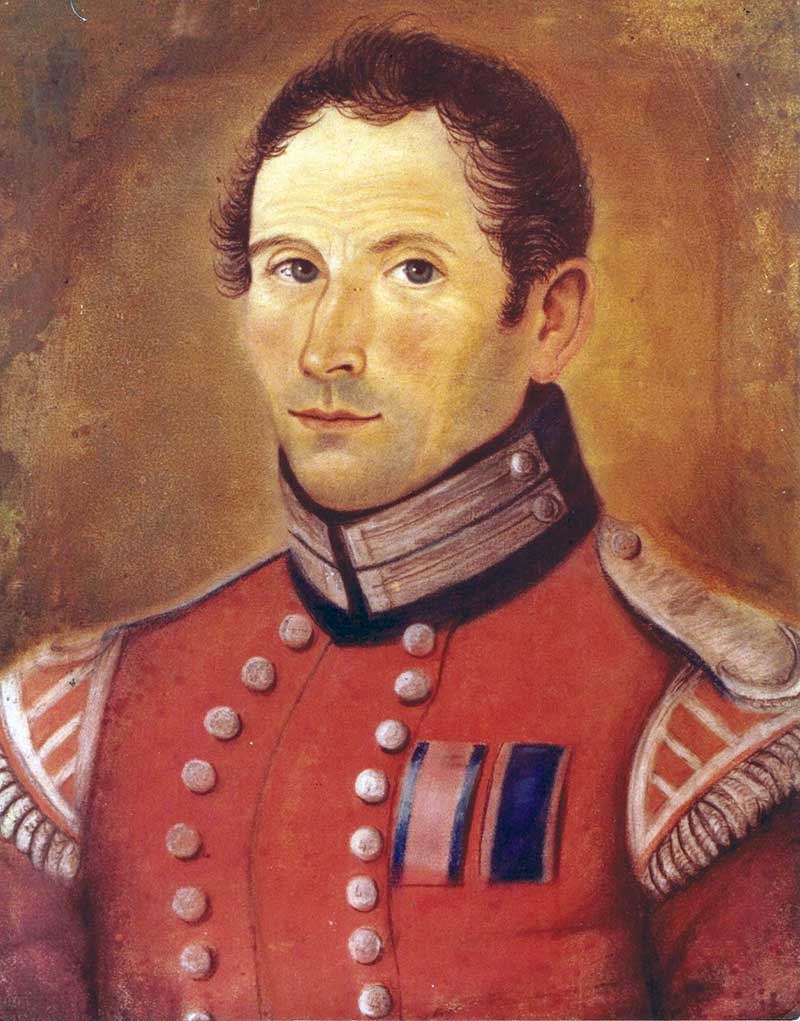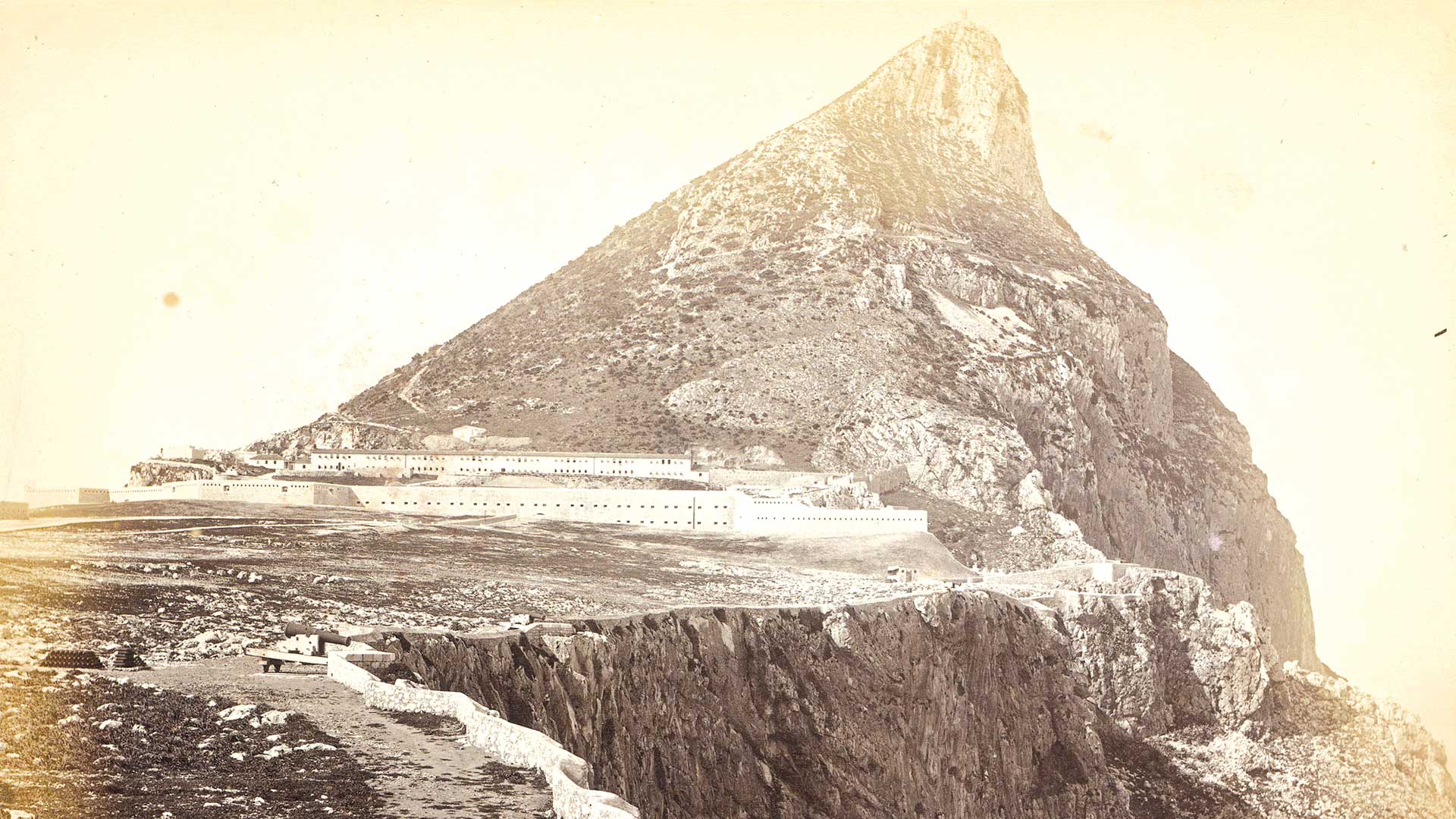A Military Life During The Most Eventful Periods of The Late War by James Anton
Quartermaster Sergeant Forty- Second or Royal Highlanders. 1823-1829

I may remark that before the regiment left Limerick, I was appointed to take charge of the officer’s mess. This was a situation, the duties of which were totally unknown to me. I had never been in a kitchen, to observe how, or in what manner, the management of the culinary art was conducted. The cook offered himself for the situation, but had not been accepted, and he was the less anxious, perhaps, to give me any instructions regarding the choice of viands. Indeed, I was under more obligations to one of my officers, for condescending to give me his advice regarding how I should act, than I was to my cook; and I should not but wonder, after I had been some years in the situation, how the officers had submitted, without remonstrance, to such a bad provider. Yet I was desirous to please, and I believe they thought so. I experienced every indulgence and gradually improved; at least I think so; and I held the situation upwards of seven years.
The situation of a messman is such that he may realise a little money, if he have a small capital to commence with, so as to enable him to purchase every article he may require, without running accounts with those with whom he deals; but this is so seldom the case, that he generally runs in debt; and with perhaps, being no accountant himself, he is obliged to employ a clerk to make up his accounts, some of which may have been trusted to a faithless memory, and forgotten; he thus gets into difficulties, from which he cannot extricate himself and become solvent.
The members of the mess, on ordinary occasions, are seldom fewer than twelve; and when there are no detached parties from the regiment, the number may be above twenty four, from each of whom the messman receives fourteen or perhaps seventeen shillings and six pence per week, according to the rate agreed upon. For this sum he furnishes them with dinner; they furnish their own wines, and the table linen, plates, cutlery, stoneware; all other utensils required for the kitchen, the pantry, and larder, they also pay the waiters, and furnish them with clothes.
The messman has this advantage over the master of an hotel, that he pays neither rent nor licence, has no article for the kitchen or table service to provide at his own expense, no furniture to purchase, and his allowance of fuel is sufficient for the use of the kitchen. If an officer dine out, he is charged the same as if he dined in, and if he invite a friend to mess, he pays for that friend. In short, if the messman and his wife pay attention to their charge, they will prosper; but if they trust to the management of others, they will be deceived; for, there are hundreds who would resist the temptation of gold, and yet they would think it no act of dishonesty to rob the cellar or larder.
After having been quartered nearly two years in Buttevant, we were ordered to Dublin, where we remained about three months; and our head colonel, the Right Honourable General Sir George Murray, being then commander of the forces, frequently superintended our movement in the field; and before we left Dublin for Gibraltar, he presented a sum of money to be distributed among the women who were not allowed to accompany their husbands to that station.
We left Dublin on the 5th of October, 1825; and after some weeks’ detention at Fermoy, waiting for the arrival of transport at the cove of Cork, we embarked in three divisions; the first on board the Albion 74; the second about three weeks thereafter, on board the Sovereign; and the third, on board the Numa, transports.
The second division of the regiment, under the command of Colonel R H Dick, sailed from the Cove on the 3rd of November 1825, and reached Gibraltar on the 15th of the same month. The sun was rising on the horizon, as our vessel, borne on the rippling stream, first caught a view of the grey rock for which we were bound. Not a breeze ruffled the face of the wide opening bay, and, towards noon, we anchored off the New Mole, disembarked the following day, and marched to Windmill Hill Barracks, where our first division, conveyed by the Albion ship of war, was already quartered. Our third division, by the Numa, did not arrive until a month afterwards.
The hill, at the foot of which the town of Gibraltar is situated, is generally designated “The Rock,” but it is by no means so destitute of vegetation as that appellation would lead us believe. On the west side, above the town, are several patches of cultivated ground, surrounding two homesteads, designated farms, though hardly worth the name. Some flowering shrubs, furze, and stunted herbage, afford a scanty pasturage for a considerable number of goats. Beyond this bound of scanty vegetation, the rock lies bare in rifted layers to its summit, inhabited by a tribe of monkeys. It appears, on our entering the bay, to be an island about three miles in length, separated from the mainland; but when we approached more closely, we could see that it was connected to the continent by a low sandy isthmus of two miles in length, from the north front to the rising heights of Spain. A narrow plain runs along the western base of the hill, and the town, about three quarter of a mile in length, is situated on the north end of this plain, fronting the bay.
The buildings extend backwards, however, and rise considerably on the face of the hill towards the two farms; so that each row of houses, on the background, overlooks that in front, and commands a view of the bay, the harbour, and the shipping. The town district is bounded on the south by a wall, which bisects the rock to the summit. Beyond this wall is the district called “The South,” and comprehends the principal part of the territory, with regard to its extent. Here are beautiful gardens, public as well as private; a spacious parade, fine walks shaded with trees, and handsome octangular arbours, surrounded by copulas, where persons may sit and enjoy a view of the bay and the coast of Spain on the opposite side. Here is the New Mole Parade, Rosia, and Buena Vista, forming separate villages, with their extensive barracks and hospitals, while the hill in the background rises to the height of twelve hundred feet, covered with a scanty vegetation of prickly shrubs, thistles, and short grass; thence rising in naked ruggedness, about four hundred to St George’s Tower, which crowns the summit of the southern pinnacle of the rock; the whole presenting a very picturesque view to the bay.
Windmill Hill is a considerable flat, forming a parade ground on the south east shoulder of the rock, sloping towards the east, and is not seen from the bay. This parade is considerably elevated above Europa Flats, and presents to the latter a base of perpendicular cliffs, inaccessible at every point, except by a temporary stair, which has lately been constructed for a more ready communication between the two places.
Europa Flats lie at the extreme point of the rock, abutting upon the Straits, and resting on a bed of rock, which rises in some places to more than sixty feet of perpendicular height above the tide, which breaks against its base. On these flats is a barracks for a company of artillery, as well as a detachment of infantry. Here is also a flag staff with the Union Jack at the top, floating in the breeze, and serving as a signal for vessels passing up and down the Straits to display their colours.
There are generally three regiments quartered in the South, viz. two at Rosia and Buena Vista, and one at Windmill Hill. A regiment, on its arrival, is generally quartered at the latter, on account of its elevated and airy situation. But the quarters of the officers are too remote from the soldiers’ parade, a circumstance which subjects the gentlemen to no small inconvenience in the rainy season. This might be easily remedied, and at very little expense, by erecting barracks contiguous to the soldiers’ and employing the non commissioned officers and privates in executing the work, under the superintendence of the Royal Artificers; and this work would be conferring an incalculable benefit on the soldier at the same time, by teaching him to be useful to himself after he is discharged from the service.
The houses occupied by the officers at present, if sold, would bring nearly double the sum which the new building would cost, under proper management. It may be said, that employing soldiers in this manner, would be enough to excite a mutiny; but I venture to affirm, that it would be attended with no such effect. I never knew a soldier object to being employed at any public work from which his country was to reap advantage. I have, on the contrary, remarked, on all occasions where such a service was required of him, that he rejoiced at being employed, however severe the labour imposed on him. But, on the other hand, call him to perform some private menial work, such as carrying coals to a parsimonious officer, or a thankless messman, then all the spirit of the man, I may say, of the rebel, rises within him, and although he may perform the work, he does it under a feeling of degradation, which is calculated to diminish, both the respect which he owes to himself, and to those who have required of him a service which should have been assigned to others.
On the arrival of the 42nd a large building occupied as an hospital, on Europa Flats, was converted into officers’ quarters and mess house. In this building eleven officers are now uncomfortably quartered. It stands remote from any other building, and exposed to every tempest that visits the gut; it is a mile from the soldiers’ barracks, two from the town, and about three from the market.
The east side of the rock is inaccessible, being almost perpendicular from its base to its summit, with the exception of a small sandy beach towards the north end where there is a small village called Catalan, from which the bay on the east side of the rock receives its name; but here the hill rises perpendicularly, that no human foot can ascend to the summit. Vessels which chance to approach this side of the rock are exposed to great danger, in consequence of an eddy current setting in from the Straits, and preventing them getting out to sea: in this case they are said to be “Back Strapped,” and may remain weeks before they can work their way out.
The north end of the hill, fronting Spain, is a perpendicular bare rock, rising to a height of fifteen hundred feet above the isthmus, designated the neutral ground. Here are two galleries excavated within the rock, one over the other, with guns pointing through embrasures, like so many pigeon holes or open windows, looking towards Spain. Such is the hill anciently called Mount Calpe, but now better known as Gibraltar; although the town bearing this name occupies but a small portion of the western base.
Part two to follow in October issue




